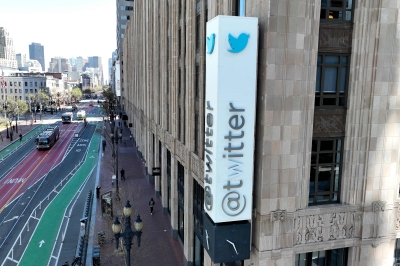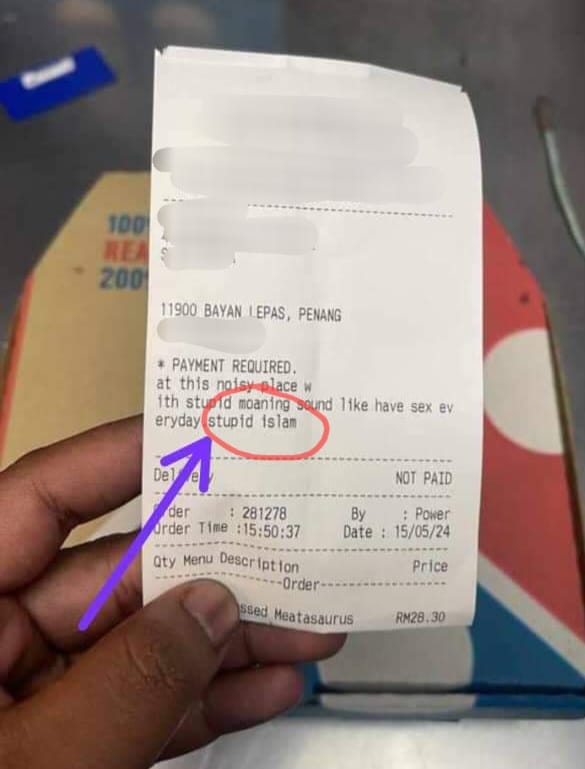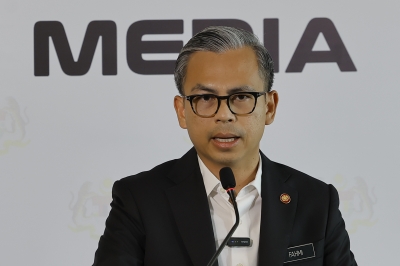WASHINGTON, April 17 — When the iconic US diaper company Huggies was swamped with false paedophilia allegations last month, the conspiracy was traced to a once-banned influencer reinstated to Twitter by Elon Musk.
The Tesla tycoon bitterly denies that misinformation has surged since his turbulent US$44 billion (RM194 billion) acquisition of the messaging platform, but experts say content moderation has been gutted after mass layoffs, while a paid verification system has served to boost conspiracy theorists.
Adding to the turmoil, the self-proclaimed free speech absolutist has restored what one researcher estimates are over 67,000 accounts that were once suspended for a myriad of violations, including the incitement of violence, harassment and misinformation.
Among those reinstated is Vincent Kennedy, a supporter of the QAnon conspiracy movement who was banned from Twitter after the January 6, 2021, attack on the US Capitol.
Kennedy, according to the advocacy group Media Matters, launched a conspiracy theory in late March that left the Huggies diaper brand fighting off extraordinary paedophilia accusations.
He posted a picture of a Disney-themed diaper featuring Simba, a character from “The Lion King”, and circled triangles and spiral swirls that were part of the design.
This was to illustrate a widely debunked conspiracy theory that the shapes are recognised by the FBI as coded signals used by paedophiles. “Once you truly awake you ain’t going back to sleep,” Kennedy wrote in the tweet that garnered millions of views.
The conspiracy theory spread like wildfire to other platforms like TikTok. Huggies, which is owned by Kleenex-owner Kimberly-Clark, then faced an avalanche of hate messages and calls for a boycott.
Huggies sought to douse the flames, writing in a direct response to Kennedy’s tweet that its designs were nothing more than “fun and playful” and that it takes “the safety and well-being of children seriously”.
But conspiracy theorists jumped on the response to further amplify the false claim.
‘Real-world harm’
“Anecdotally, there’s no doubt that the flood of toxic content from repeat offenders Elon has re-platformed is driving real-world harm,” Jesse Lehrich, cofounder of the advocacy group Accountable Tech, told AFP.
“When you reinstate the architects of the January 6 insurrection as democracy teeters on the brink, when you give a massive platform to notorious neo-Nazis amidst a surge in anti-Semitism, when you re-platform influential purveyors of medical disinformation in the middle of a pandemic, there are going to be real-world consequences.”
Travis Brown, a software developer based in Berlin, has compiled an online list of more than 67,000 restored Twitter accounts since Musk’s takeover in late October. Brown told AFP that the list was incomplete and the actual number of restored accounts could be higher.
In a recent BBC interview, Musk pushed back at allegations that misinformation and hateful content were seeing a resurgence since his takeover.
He accused the interviewer of lying. “You said you see more hateful content, but you can’t even name a single one,” Musk said.
Experts AFP spoke to named dozens of examples — including posts by anti-vaccine propagandists, neo-Nazis and white supremacists.
After his account was restored, election conspiracy theorist Mike Lindell called on his followers to “melt down electronic voting machines” and use them as prison bars.
Anti-LGBTQ+ narratives — including the false claim that the community “grooms” children — have spiked on the platform, according to the Centre for Countering Digital Hate (CCDH).
One key driver of the “grooming” narrative, the group said, is conspiracy theorist James Lindsay, whose account was recently restored after previously being banned permanently.
‘Hateful rhetoric’
“The reinstatements increase hateful rhetoric across the platform, creating a culture of tolerance on Twitter — tolerance to misogyny, racism, anti-LGBTQ tendencies,” Nora Benavidez, from the nonpartisan group Free Press, told AFP.
Imran Ahmed, chief executive at CCDH, said “Twitter is monetizing hate at an unprecedented rate.” Just five Twitter accounts peddling the “grooming” narrative generate up to US$6.4 million in annual advertising revenue, according to CCDH’s research.
But experts say the strategy is counterproductive as that can hardly offset lost advertising revenue.
The chaotic shake-up under Musk has scared off several major advertisers. Twitter’s ad income will drop by 28 per cent this year, according to analysts at Insider Intelligence, who said “advertisers don’t trust Musk”.
As an alternative, Musk has sought to boost income from a verification checkmark, now available for US$8 in a programme called Twitter Blue. But dozens of “misinformation super-spreaders” have purchased the blue tick and are inundating the platform with falsehoods, according to the watchdog NewsGuard.
“Musk reinstated accounts to make money and to adopt what he believes, misguidedly, is some ‘equal free speech’ mindset — ignoring that the (policy) makes Twitter a platform which rewards violent language with visibility,” Benavidez said.
“This chills speech and engagement rather than furthers it.” — AFP







